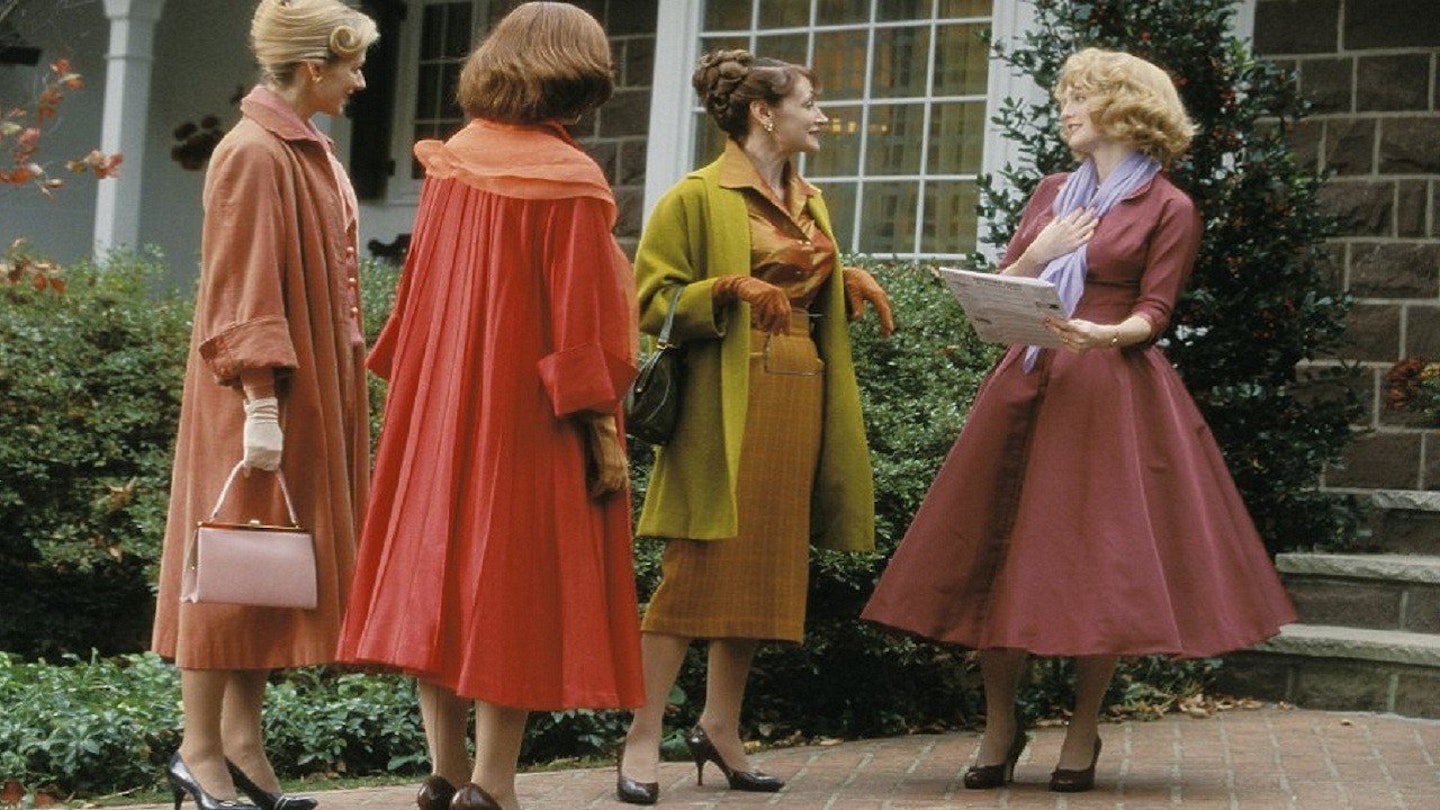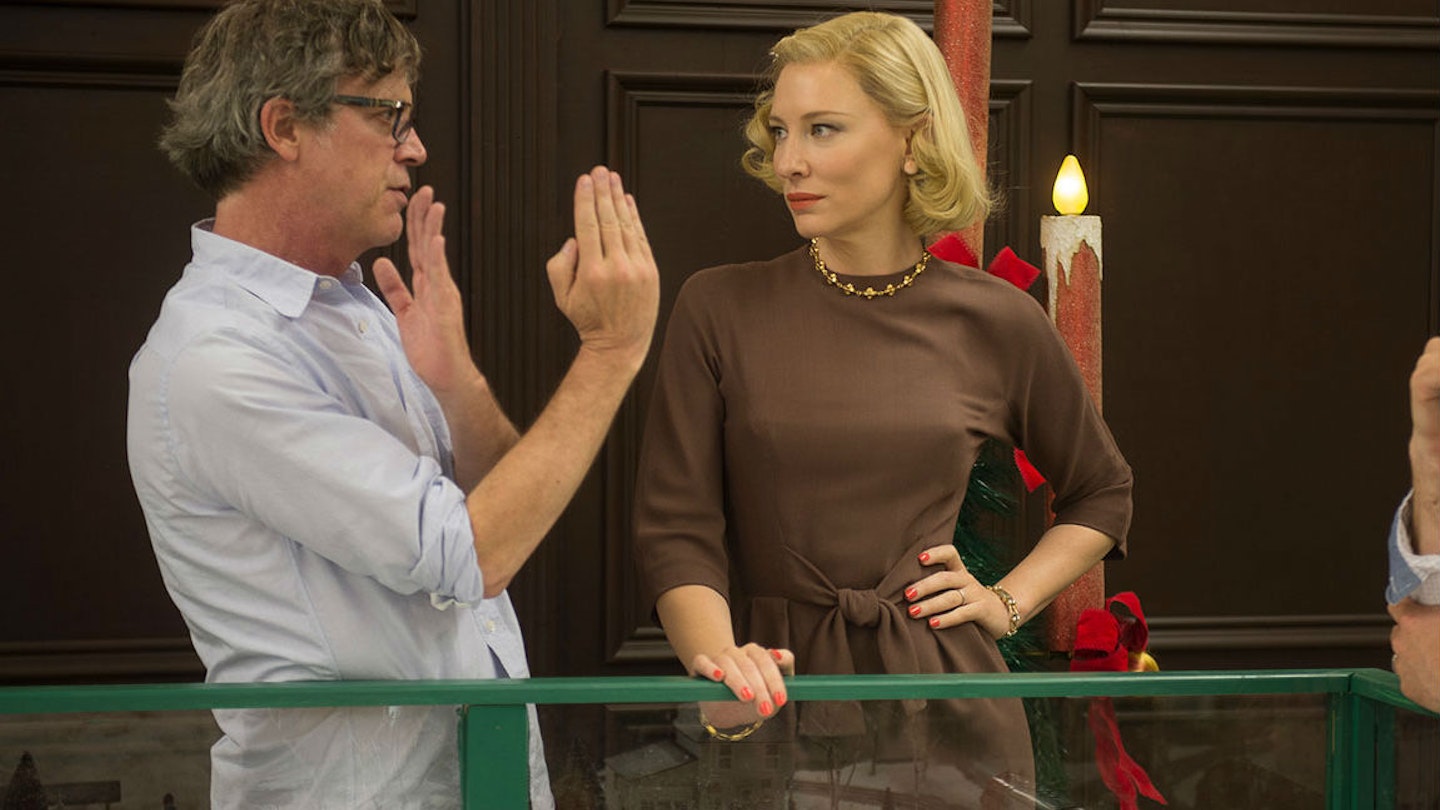On one level, Far From Heaven is a fabulous piece of performance art the reinterpretation of an out-of-favour genre by a witty filmmaker with hip credentials and connections (including Steven Soderbergh and George Clooney for executive producers). But when you get into it, the emotional experiences of the film's distant lives are timeless and powerfully affecting.
Anyone familiar with plush '50s Technicolor melodramas will immediately recognise Todd Haynes' inspiration for this bold experiment as Douglas Sirk. A leftist filmmaker who fled from Nazi Germany to Hollywood, Sirk's European sophistication and formal visual style elevated absurd and maudlin stories into deliriously entertaining, heightened-reality, multiple-hanky domestic dramas. Haynes has cited Sirk's All That Heaven Allows (middle-class widow Jane Wyman falls in love with young gardener Rock Hudson and suffers social ostracism) and Imitation Of Life (the daughter of Lana Turner's black housekeeper passes as white with heart-rending consequences) as two of his touchstones.
With remarkable confidence and subtlety, Haynes has taken on topics never addressed openly in their day homosexuality, interracial love, the oppression of women along with the hard drinking, malice, home-wrecking and tearful sacrifice that were the stuff of vintage 'women's pictures'. What is most fascinating is that Haynes does not allow a single arched brow, whiff of campness or hint of irony to break the spell. We are transported in time to see the world through the characters' eyes, attitudes and vocabulary. When, for example, Frank is shamed into seeing a psychiatrist for an uncomfortable discussion of aversion therapy, there is nothing funny about it. The hostile reception Cathy gets at her little girl's ballet recital is chilling. The tenderness between Cathy and Raymond is agonising because we realise as clearly as they do what they are up against.
Quaid, showing hitherto unsuspected depth, is ideal as the clean-cut, all-American guy who has become a self-loathing, mean drunk under the burden of his guilty secret. Haysbert, underplaying beautifully, is magnetic as the gentle man in whom the heroine finds liberating understanding and empathy. Moore is magnificent as the glamorous homemaker whose self-discovery has a painful price. What they all have in common is loneliness isolated by taboos, repressions and niceties enforced by Cathy's 'friends' among the daiquiri-fuelled ladies who lunch and dish the dirt.
The picture looks good enough to eat, with quite exquisite art direction, costumes and cinematography all keyed to a specific and sumptuous colour palette. As autumnal New England drifts into winter, the character's clothes are toned to complement the backdrop, interior landscapes and dramatic moods. But the style serves the content.
If you're wondering quite what the point of this is, beyond reclaiming a genre, Haynes' careful observation of human nature leaves you in no doubt at all that any contemporary complacency over issues of sex and race is as naive and hypocritical in the Dubya Bush andBlair era as it was in Eisenhower and Macmillan's.


